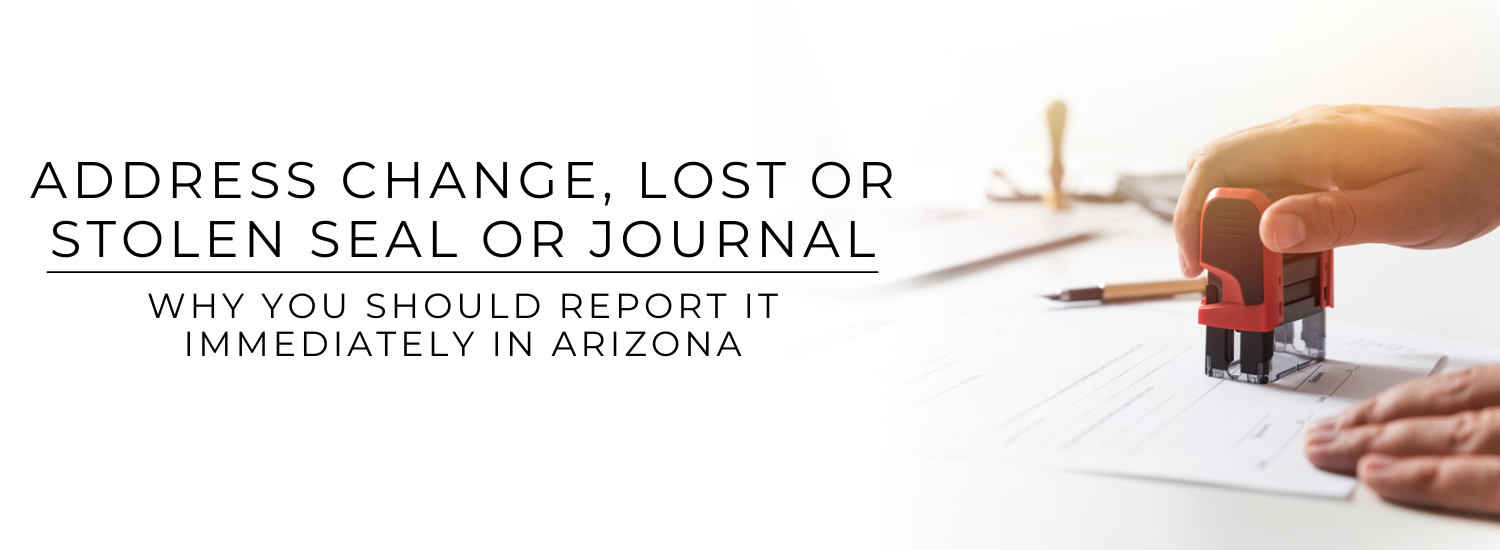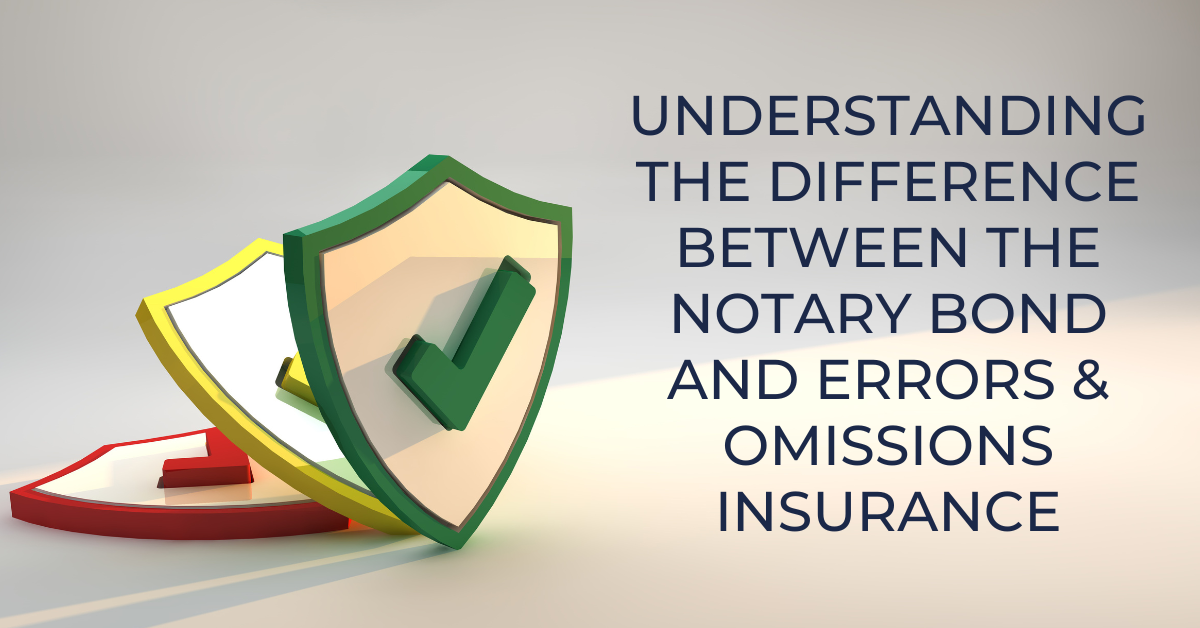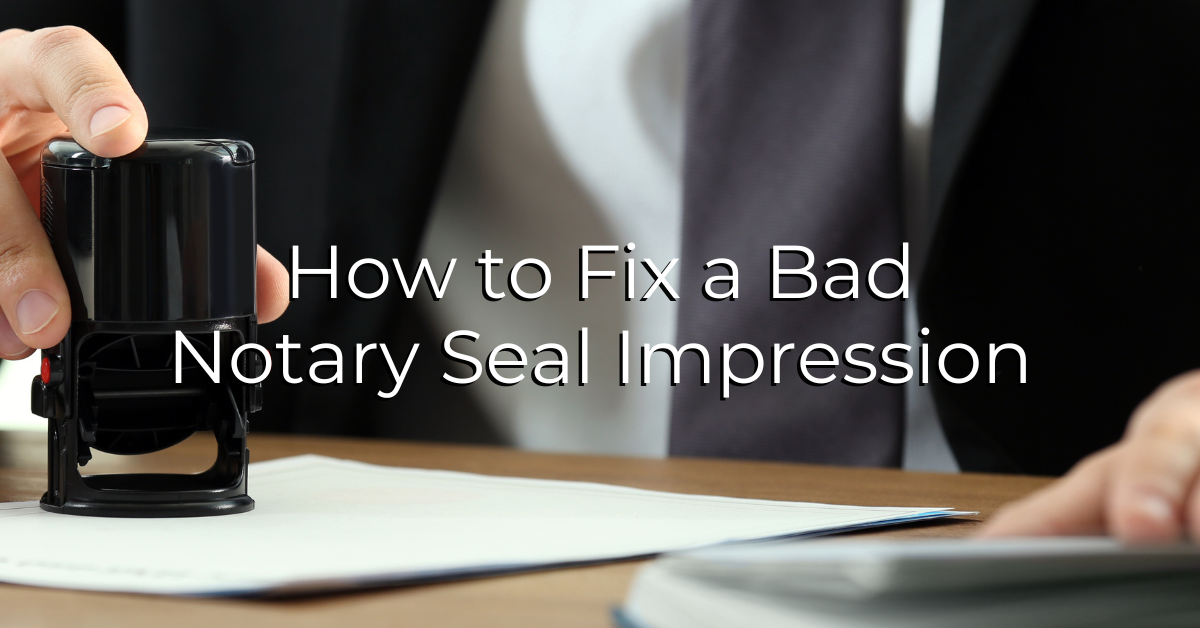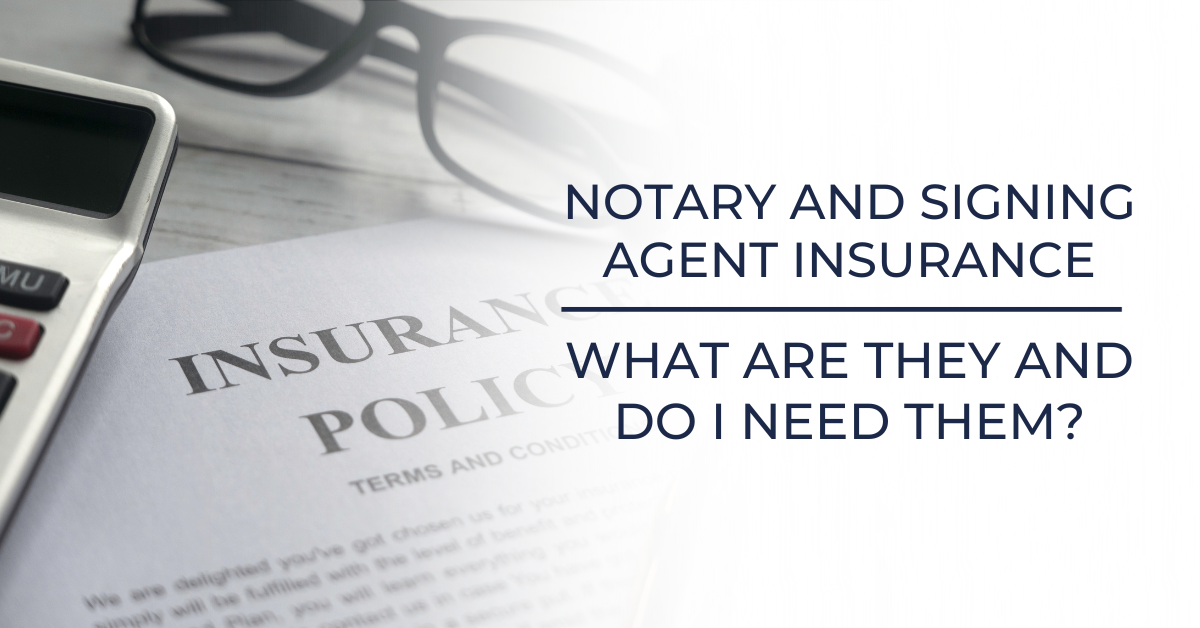National

Moving to a new home? Recently started a new job? Discovered your Notary stamp (seal) or journal (record book) is either missing or has been stolen? Notifying the Secretary of State’s Office of these events is more crucial than ever.

Becoming a notary signing agent is an excellent opportunity for individuals seeking to increase their expertise and earn additional income. In this blog, we'll outline the steps to becoming a notary signing agent, from meeting the basic requirements to obtaining the necessary training and insurance.

As a notary public, you play a crucial role in helping to deter fraud and promote the integrity of document transactions. However, the responsibilities of a notary come with inherent risks, including potential mistakes that could lead to legal consequences. To protect yourself, it's essential to understand the difference between a notary bond and errors & omissions (E&O) insurance and why having both is crucial.
Read more: Understanding the Difference Between the Notary Bond and Errors & Omissions Insurance

No matter how much we pride ourselves on the quality of our notary seals, a bad or smudged impression is bound to happen at some point. In those instances, what is a notary to do?
Notaries Public in all U.S. jurisdictions are authorized to administer oaths and affirmations. Oaths and affirmations both function as solemn promises of truthfulness, and both are statements made under the penalty of perjury. The key difference between an oath and an affirmation is that an oath invokes a higher power.

Notary Public Errors and Omissions Insurance (E&O) and Signing Agent Errors & Omissions Insurance are similar but distinct types of insurance coverage. Many notaries wonder if they're necessary and, if so, which type should they have.
Read more: Notary and Signing Agent Insurance - What Are They and Do I Need Them?

